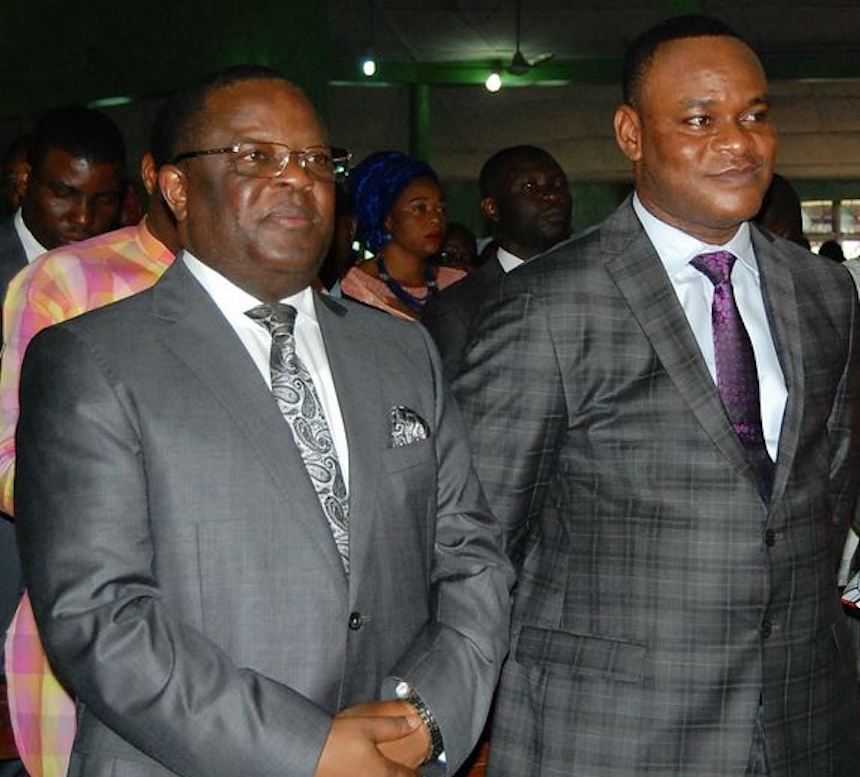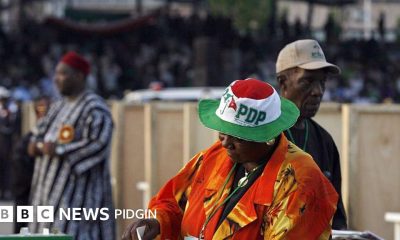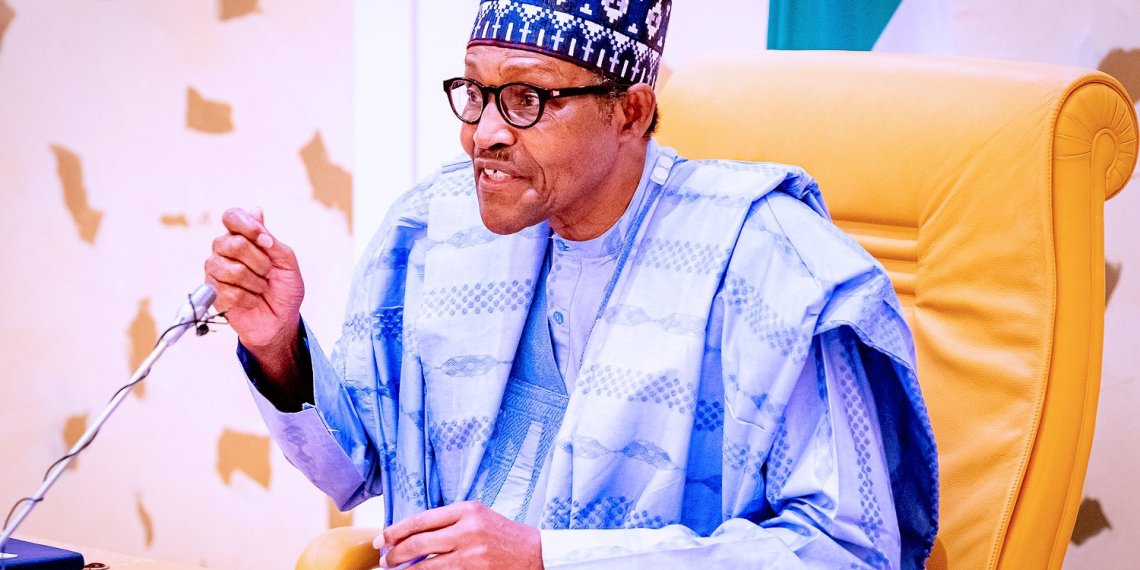Comments and Issues
Neither a governor nor deputy can be removed from office by a court of law for defecting to another political party
Published
4 years agoon
By
Publisher
By Chief Mike Ozekhome, SAN,
I have just read social media publications regarding the judgment delivered today by the respected Honourable Justice Inyang Ekwo of the Federal High Court, Abuja.
I am of the firm belief that the judgment, shredded of all legal and factual details, cannot stand the acid test of constitutionalism, nor pass the furnace of appellate courts scrutiny. This is because the tenure of office of a Governor and his Deputy are constitutional matters.
Also read: Court ruling: Umahi explains why he remains governor of Ebonyi state
The judgment is said to have sacked Governor David Umahi and his Deputy, Eric Kelechi Igwe from their offices. He cited section 221 of the Constitution, which merely prohibits political activities by certain associations which are not political parties from canvassing for votes or contributing to elections expenses of any candidate at any election. The Judge ordered the PDP to immediately send names of replacements to INEC so that fresh elections can be conducted. He also ordered INEC to cease recognising Umahi and Igwe as Governor and Deputy Governor, respectively, of Ebonyi State.
The learned trial Judge further held that the 393, 042 votes polled by Umahi in the March 9, 2019 governorship election belonged to the PDP and cannot be legally transferred to the APC upon defection, and that there is no constitutional provision that made the ballot transferable from one party to another. He therefore order INEC to conduct fresh election in accordance with section 177(c) of the Constitution. Not so fast, the enforcement of this judgment. The Governor and his Deputy have 90 days to appeal this decision under section 25(2), (a) of the Court of Appeal Act, it is their right under sections 240 and 241, of the Constitution, the judgment being a final one.
Also read: 2023: Why Umahi may defeat Tinubu, Osinbajo for APC presidential ticket
THIS JUDGMENT CANNOT SURVIVE APPELLATE SCRUTINY
Perhaps, the Jurist’s learned attention was not drawn to appellate decisions on this type of matter, which under the doctrine of stare decisis and judicial precedent, he ought to have followed meticulously. He may also not have been availed of the clear provisions of sections 180 and 188 of the 1999 Constitution.
WHO VOTES AT AN ELECTION?
It is not only the registered voters of a political party that cast their votes for a President, Vice President, Governor or Deputy Governor. Many non-politically partisan persons also vote; just like opposition party members who may prefer a particular candidate even though not in their party. It is therefore not correct to hold that votes scored by a candidates belong to a political party and therefore not transferable. The courts have since gone over the era of Amaechi V. INEC, where the Supreme Court had held that votes cast in an election belong to a political party. Section 141 of the Electoral Act, 2010, as altered that section, by providing that for a candidate to become Governor, he must have participated at all stages of the election. This includes primaries and the general governorship election.
VOTES BELONG TO INDIVIDUALS, NOT POLITICAL PARTY
The appellate courts have since held again and again that votes cast in an election belong to a live candidate, and not the political party which merely serves as a vehicle that enthrones candidates.
The Judge in his Judgment had agreed with the PDP which relied on sections 221, 177(c), 106(d) and 65(2)(b) of the Constitution to substantiate its argument that votes belong to the political parties; and it is impossible for candidates to exist without a political party. The case of NGIGE V. AKUNYILI (2012) 15 NWLR (PT.1323) 343 @ 357-376, which came much later over rule this position. The court held in that case that:
“…it is my considered view that the Appellant in relying on the provision quoted above (section 211 of the Constitution), has conveniently lost sight of the underlined words which show that a political party canvasses for votes on behalf of the candidate. In other words that a political party is nothing more than an agent of the candidate in gathering votes for an election. It is my further view that is against the backdrop of this, that the Electoral Act (Supra) requires the candidate (and not the party of the candidate) that has the highest number of votes at an election to be declared as the winner of the said election and further provides for the means of challenging the return of the candidate (and not his political party…”(Emphasis supplied).
In a more recent decision, the Court of Appeal in the case of NWANKWO & ANOR v. INEC & ORS (2019) LPELR-48862(CA) held thus:
“… It is trite that it is only a natural person that can be lawfully declared and returned as a winner of an election. The Electoral Act, 2010 (as amended) only contemplates the declaration and return of a candidate in an election and not a political party”.
The authorities cited above have, for all intents and purposes, rested the issue as to whether it is the candidate or the party that owns the votes. The party only serves as a vehicle and nothing more. The judgment is therefore liable to be upturned on appeal.
Thus, the Amaechi case position has since been over taken by the 2010 amendment to the Electoral Act and recent decisions of the Court of Appeal and Supreme Court, which have now vested the votes on the candidate and no longer on the political party as wrongly held by Justice Ekwo. While interpreting section 141 of the Electoral Act, 2010, in CPC & ANOR v. OMBUGADU & ANOR (2013) LPELR-21007(SC), the Supreme Court held thus:
“Section 141 of the Electoral Act 2010 (as amended) provides in unmistaken terms: “An election tribunal or court shall not under any circumstance declare any person Winner of an election in which such a person has not fully participated in all the stages of the said election.” By the above provision, the National Assembly has set aside the decision of this court in Amaechi v. INEC (2008) 5 NWLR (Pt. 1080) page 227 at 296. Contrary to the decision of this court in Amaechi’s case, the implication of section 141 of the Electoral Act, 2010 (as amended) is that while a candidate at an election must be sponsored by a political party, the candidate who stands to win or lose the election is the candidate and not the political party that sponsored him. In other words, parties do not contest, win or lose election directly; they do so by the candidates they sponsored and before a person can be returned as elected by a tribunal or court, that person must have fully participated in all the stages of the election, starting from nomination to the actual voting.” Per NWALI SYLVESTER NGWUTA, JSC (Pp 51 – 51 Paras B – F).(Emphasis Supplied).
Also read: 2023 Presidency: Osinbajo deepening consultations to ‘uproot’ Tinubu in APC
Relying on the judgment cited above, the Supreme Court held thus in the case of OZOMGBACHI v. AMADI & ORS (2018) LPELR-45152(SC), held as follows:
“…I believe the Supreme Court has laid to rest the contention that it is the political party which contests and wins an election. In C.P.C. v OMBUGADU (2013) 18 NWLR (Pt. 1385), the court was categorical that individuals as candidates win election and not the political parties.” Per MARY UKAEGO PETER-ODILI, JSC (Pp. 48 – 49 Paras E – A).
In HARUNA v. APC & ORS (2019) LPELR-47777(CA), the Court of Appeal held thus amongst several others:
“In other words, parties do not contest, win or lose election directly; they do so by the candidates they sponsored and before a person can be returned as elected by a tribunal or court, that person must have fully participated in all the stages of the election starting from nomination to the actual voting.” Per UGO, J.C.A. (Pp. 12-27, Paras. F-F).(Emphasis supplied).
The court further held thus:
“The implication of section 141 of the Electoral Act 2010 (as amended) is that while a candidate at an election must be sponsored by a political party, the candidate who stands to win or lose the election is the candidate and not the political party that sponsored him” Per UGO, J.C.A. (Pp. 12-27, Paras. F-F). (Emphasis Supplied).
I therefore most respectfully submit (as held by appellate courts) that a political party is merely a vehicle in which a candidate can ride to contest an election and nothing more. The votes belong to the candidate and not the political party. The political party ceases to have any considerable relevance or insolence over a person that has won an election and has been sworn in as a legislator, Governor or President of the entire people, who are far larger than a mere political party.
THE APEX COURT SPEAKS
More poignantly, the apex court has since laid to rest, the question of whether the President and Vice President (and by parity, Governor and Deputy Governor) can defect from the original party that sponsored them during election to another party. This was the case of AG, Federation v. Atiku Abubakar (2007) 10 NWLR (Pt.1041) 1, 29.
Briefly, the facts of this case are that Abubakar Atiku (then Vice President) entered into a frosty relationship with his boss, President Olusegun Obasanjo, after both had been sworn in on 29th May, 2003. Atiku then resigned from the PDP and joined the Action Congress (AC) whilst still in office as Vice President. Obasanjo would brood none of this, as he promptly declared Atiku’s seat vacant as Vice President of the Federal Republic of Nigeria. Atiku, being aggrieved, sued the Attorney General, the IGP and INEC, by way of Originating Summons at the Court of Appeal.
After briefs were exchanged and argument proffered, the intermediate court unanimously held in favour of Atiku. It held that Atiku could defect without losing his seat. Dissatisfied, the A.G and others appealed to the Supreme Court which unanimously dismissed the appeal.
The law is that the Vice President could only be removed from office by reason of death; or when he is succeeded after spending 4 years in office; or through removal from office by impeachment proceedings under section 188 of the 1999 Constitution. Indeed, the apex court held in that case that the power to remove the President and Vice President (and by parity Governor and Deputy Governor) is provided for in section 143 of the Constitution (read section 188 in the case of Governor and Deputy Governor). The Supreme Court held as follows:
“The 1999 Constitution does not provide that the President or Vice-President of the Federal Republic of Nigeria shall be removed or is removable from that office if he defects from the political party on whose platform he was elected to that office and joins another political party……….
“It is manifest from the provisions of sections 68(1)(g) and 109(1)(g) of the 1999 Constitution that the makers of the Constitution intended to; and indeed made punishable the defection of a member of the Senate, House of Representatives or a House of Assembly from the political party that sponsored him into another party before the expiration of the period for which the legislative house was elected by declaring the seat of such member vacant. However, no similar provision is made for the Vice-President. In other words, if the makers of the Constitution had intended the Vice-President or the President to suffer the same fate as a member of the Senate, House of Assembly, they would have inserted such provision in the Constitution in clear terms………
“It seems clear to me that the Latin maxims: expression unius personae vel rei, est exclusion alterius or inclusion unius est exclusion alterius- when translated into English Language mean: the express mention of one person or thing is the exclusion of another or the inclusion of one is the exclusion of another; respectively- are very much apposite here; see the cases of military governor of Ondo State v. Adewunmi (1988) 3 NWLR (Pt. 82) 280 and Attorney-General Bendel State v. Aideyan (1989) 4 NWLR (Pt. 118) 646 where the maxims were considered.
“Had the law-makers been minded that punishment or consequence of political cross-carpeting should be applicable to the President or Vice-President as they have done in respect of a member of the Senate or of the House of Representatives or even a member of the House of Representatives or even a member of the House of Assembly in the aforesaid provisions of sections 68(1)(g) and 109(1)(g) would have stipulated same in an unmistakable term in section 146 of the 1999 Constitution quoted above”.
Also read: Even if Umahi does not vacate his seat
Continued the Supreme Court:
“By virtue of section 40 of the 1999 Constitution, it is unconstitutional to deny a citizen of Nigeria the right to opt out of any political party, or the right to join or belong to any political party, trade union or any other association for the protection of his interest provided that the political party is recognized by the Independent National Electoral Commission. In the instant case, it was not shown by credible evidence that the political party to which the 1st respondent defected was not recognized by the Independent National Electoral Commission. In the circumstance, the 1st respondent ought not to be penalized for joining the political party”.
“1st respondent is alleged to have defected or cross-carpeted to another political party. Although defection or cross-Carpeting to another party or dumping the original party that sponsored one for election to a particular office which is created by the Constitution, or in the same vein, condemning or criticizing that party or its members who by virtue of the same election hold some offices created by the Constitution, is painful, unconscionable, and immoral, it is however not illegal. I cannot find any fault with the lower court’s adumbration on section 40 of the Constitution of the Federal Republic of Nigeria, 1999, Chapter IV thereof, which guarantees a citizen of this country freedom of association”. (Underline mine for emphasis).
COULD THE GOVERNOR AND HIS DEPUTY HAVE BEEN SUED IN THE FIRST CASE?
Another stormy tumble and rumble the present judgment will run into is section 308 of the Constitution which grants absolute immunity to the President, Vice President, Governor and Deputy Governor from being proceeded against in any civil or criminal proceedings. The only the exception is section 308(2) which permits proceedings against this set of people when they are sued only in their official capacity, or a nominal party.
The case against Umahi and his Deputy were in their personal capacities as human beings who had defected from the PDP to the APC, See Tinubu v IMB Securities Plc (2001) LPELR -3248(SC), I.C.S. (Nig) Ltd v. Balton B. V. (2003) 8 NWLR (Pt.822) 223, Fabunmi v. IGP & Anor.
Consequently, no civil or criminal proceedings could ever sustain against this set of persons, whilst still holding office. Indeed, in the words of section 308(1), “no civil or criminal proceedings shall be instituted or continued against a person to whom this section applies during his period in office”. More significantly, “no process of any court requiring or compelling the appearance of a person to whom this section applies, shall be applied for or issued”.
This was why in Global Excellence Communications Ltd & Ors v. Donald Duke (2007) LPELR – 1323 (SC), The apex court lamented that “section 308 of the Constitution confers absolute immunity on those therein mentioned, without a corresponding disability on them to the exercise of their rights to institute actions in their personal capacities in any relevant court of law for redress during their tenure of office”.
Our discussion here is about the “lex Lata” (the law as it is); and not the “delege ferenda” (the law as we would want it to be. No sentiments or lachrymal effusion here. The Governor and his Deputy could not have been sued at all, to be removed from office for defecting, this not being a pre-election or post-election matter covered by the Fourth alteration to the Constitution, and which expired well over two years ago. The court made it clear in EJURA V. IDRIS & ORS (2006) LPELR -5827 (CA), where the court held:
“The 1st Respondent, the Governor of Kogi State can only be removed by a successful petition heard by an Election Petition Tribunal. Where, as in the instant case the Appellant sought to remove the Governor, by an Originating Summons filed before the Federal High Court, the provisions of section 308 of the Constitution protects the Governor from such a civil proceeding notwithstanding the provisions of section 21(5) of the Electoral Act. The trial Judge was right to decline jurisdiction in the light of the clear provisions of section 308 of the Constitution.” Per RHODES-VIVOUR, J.C.A (as he then was)(Pp. 15-19 paras. F). (Emphasis mine).
Also read: Revealed! 2023 ambition, other reasons Buni was removed as APC chairman
This was what was done in the Umahi case.
Going by the above plethora of authorities, I humbly submit that a Governor already sworn in can not be removed by the Federal High Court through an Originating Summons. It will surely be set aside on appeal. Mark my words.
You may like
Trending

 Health1 week ago
Health1 week agoFOI data show thousands of heart failures reports linked to AstraZeneca COVID-19 vaccine

 Latest1 day ago
Latest1 day agoYoruba film industry mourns as popular actress aunty Ajara passes away

 Trends2 days ago
Trends2 days agoTonto Dikeh reunites son with Churchill after decade-long split

 Crime1 week ago
Crime1 week agoUK Court hears digital, financial evidence in Diezani Alison-Madueke corruption trial

 Energy6 days ago
Energy6 days agoNNPC unveils gas master plan to boost Nigeria’s energy sector

 Latest1 week ago
Latest1 week agoCourt nullifies PDP National Convention, bars Turaki, others from parading as party officers

 Aviation1 week ago
Aviation1 week agoAir Peace dismisses fraud allegations, says Lagos–São Paulo direct flight process ongoing

 Latest1 week ago
Latest1 week agoPDP affirms leadership from Ibadan convention after Federal High Court ruling







